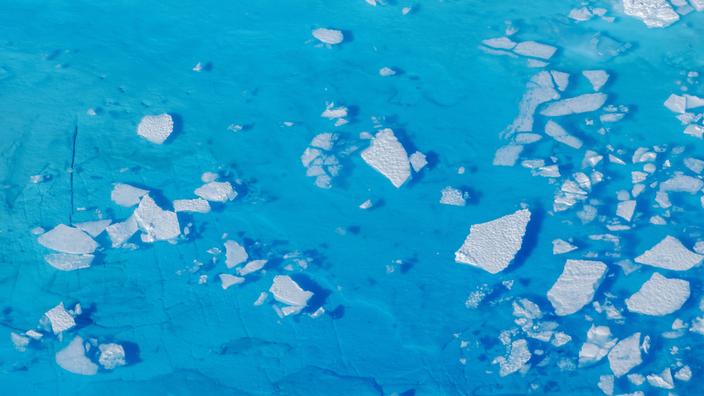The melting of the planet's glaciers, caused by global warming, has accelerated further in the past 20 years, now contributing to more than 20% of the rise in sea level, according to a study published Wednesday.
Read also: Global warming: 51% of Peru's glaciers have melted in 50 years
While the Earth has already gained more than 1 ° C since the start of the pre-industrial era, glaciers, from the Himalayas to the Andes via the Alps, have already been on a slimming diet since the middle of the 20th century. But only a few hundred of the planet's 220,000 glaciers - excluding the Greenland and Antarctic ice caps - are monitored in situ. “
There are many regions where we did not know how the glaciers evolved,
” Romain Hugonnet, lead author of the study published in Nature, told AFP. Using half a million satellite images, "
the world's first comprehensive glacier thinning mapping
" concludes that "
all glaciers are melting
", With a few exceptions, continues the researcher from ETH University in Zurich and University of Toulouse.
The planet's glaciers lost an average of 267 billion tonnes of ice per year between 2000 and 2019, according to the study. Enough to completely submerge Switzerland under six meters of water each year, comments ETH Zurich in a press release. And the melting has greatly accelerated: from an average of 227 billion tonnes per year between 2000 and 2004 to an average of 298 billion tonnes per year between 2015 and 2019. “
Excluding the areas on the outskirts of Greenland and Antarctica, therefore by keeping 70% of the planet's glaciers, in 20 years we go from an average thinning of about a third of a meter per year, to two-thirds of a meter per year
”, underlines Romain Hugonnet . “
In 20 years, we have doubled this speed of thinning. It is very disturbing
". The glaciers of Alaska, the Alps and Iceland are among those that have shrunk the fastest. The general conclusions of the study are in line with those of the UN climate experts (IPCC) which, however, included very large margins of uncertainty. "
Ours has an uncertainty reduced by a factor of 10
", assures Romain Hugonnet. In particular concerning the impact on the rise in sea level.
This melting has contributed 21% of this rise since the turn of the century, or 0.74 mm per year, according to the study. The new data, much finer geographically, could also help with planning in densely populated areas where glaciers play a major role in water supply and agriculture. “
In the short term, glaciers that melt faster and faster will provide more and more water to rivers, serving as a buffer in some regions like India or in the Andes in arid periods. But then we will reach a peak, and the quantity of water will quickly decrease, until there is no more
”, warns the researcher,estimating that "
in a few decades most regions will begin this downward slope
".

